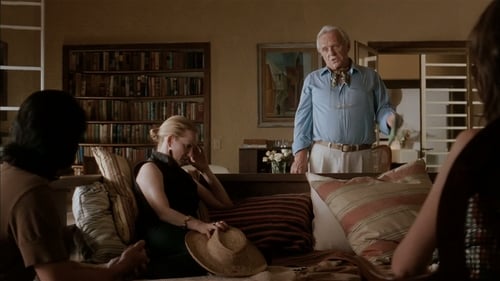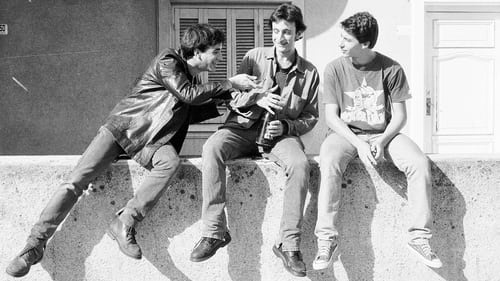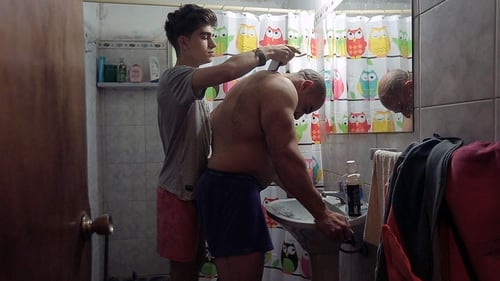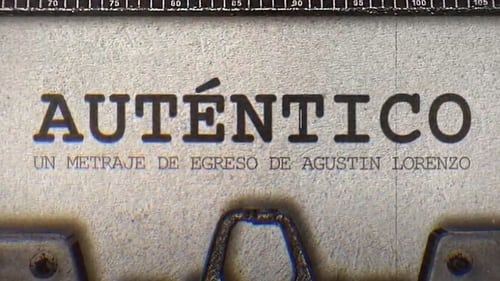Candomberos: de dos orillas (2018)
Жанр : документальный, музыка
Время выполнения : 1Ч 50М
Директор : Ernesto Gut
Краткое содержание
Documentary about the birth and development of candombe in Uruguay. It is built through testimonies, audiovisual files and animations. It also covers the actuality of the candombe on the shores of the Río de la Plata.

Andres and Elias get together one evening for their last summer joint. On his way home, Elias finds a hidden case containing 5 different types of drugs. The next morning, Elias calls Andres to catch up on his discovery. He tells him he wants to gather round with some friends to perform an experiment: each should take a different drug and see what happens. The experiment takes a sudden turn when Andres girlfriend calls him to say her grandma has died.

A documentary on the life of Uruguayan politician and former guerrilla fighter José Mujica.

В центре повествования — путешествие американского студента, отправившегося за вдохновением в Уругвай. Он хочет написать биографию известного латиноамериканского поэта, а для этого — вынужден общаться с родственниками умершего уже гения.

24 hours in the life of three street youths in Montevideo. Three teenage guys try to figure out what they're supposed to be doing with their lives in this drama from Uruguay that puts the emphasis on character over narrative.

In 1998, a small South American village is in a flurry over the Pope's upcoming visit for the business opportunities that it will provide. While most of the residents plan to sell food at the parade, a smuggler family man decides to build a pay toilet.

Affected by the disappearance of her best friend, Clara has withdrawn from the outside world. At a party she meets Mateo, he seems to know her more than she thinks.

Богатая голливудская студия купила в Уругвае для своего очередного фильма старинный локомотив XIX века. Но это известие встречают в штыки старички - члены ветеранской Ассоциации железнодорожников. Они решают бойкотировать сделку и не дать переправить поезд в США. Трое самых отчаянных пенсионеров и внук одного из них похищают локомотив и с лозунгом "История не продается" сбегают от новых владельцев и полиции по заброшенным узкоколейкам Уругвая. Естественно, по пути с ними случается масса приключений в духе самого настоящего вестерна. Но главное - их поступок становится лучом надежды, символом сопротивления для многих и многих уругвайцев, которые встречаются им на пути.

In 1983 a group of 154 children aged 3 and 17 years old traveled alone from Europe to Montevideo. They were children of political exiles from Uruguay, who were unable to come back to their own country; they sent their kids to know their relatives and home country. That human sign, charged with a political message, took part in children’s identity development. Nowadays, six of them still remember that day, when a crowd received them singing all together “your parents will come back”.

Images of Argentinian companies and factories in the first light of day, seen from the inside of a car, while the director reads out documents in voiceover that reveals the collusion of the same concerns in the military dictatorship’s terror.

In 2004, after 174 years in which political power was always held by one or other of the parties on the right, a historic change at last became possible in Uruguay. This documentary was filmed in the days coming up to the election, and it shows how the common people saw their country. The main protagonist is the man in the street. With humour, with intense emotions, with a lot of dignity and a passion for politics, these Uruguayans show how proud they are to be playing a role in their country's history.

Two young people learn about love as politics turn their world upside down in this drama from director Ana Diez. After a long and successful career as a soccer player, Xavi retires from the game and moves to Spain, where one day to his surprise he happens upon Rosana, a friend from his childhood in Uruguay. As Xavi and Rosana catch up on what has happened to them over the past thirty years, they flash back to 1973, when young Xavi and his father Manuel, a shoemaker, lived down the street from Rosana.

In 1986, the Uruguayan Parliament passed a law granting amnesty for all crimes and human rights violations committed by the military and police during the dictatorship (1973-85). This law of impunity prevented the clarification demanded by the relatives of those who had disappeared and been murdered by the former regime. A public initiative arose calling for a referendum in which the law be subject to the vote of the people. Unas preguntas uses U-matic footage, mostly of interviews recorded on the streets of Uruguay between 1987 and 1989, to present a time capsule of the period.

ONLY NOISE is a documentary that tries to rescue from oblivion a tale with Les Renards as protagonists, one of the many bands from the 60s that was a key witness and pioneer in the first big explosion of Uruguayan Rock. It might look like a tale from an ordinary band, but in 1968 this band managed to break a world record.

Documentary about the birth and development of candombe in Uruguay. It is built through testimonies, audiovisual files and animations. It also covers the actuality of the candombe on the shores of the Río de la Plata.

The Punta de Rieles prison was where most female political prisoners were incarcerated during the dictatorship in Uruguay. The way up to the building led through “the meadow” where there were animals grazing, and the prison itself was surrounded with flowers. The place seemed eminently liveable, almost comfortable, and at first sight there was no sign of the silent struggle going on behind those walls. This documentary is an attempt to reconstruct life at the prison through the testimony of some of the hundreds of women who were there and who resisted the military regime's attempts to grind them down and destroy them.

Ten years after winning a world title in bodybuilding in Russia and becoming a star of said discipline in Mexico, Antonio Osta (43) leads a life of austerity in the Uruguayan rural town where he grew up. He resides there with his son Juanjo (17), a sensitive teenager who keeps him company and confronts him openly. Suffering from acute kidney disease which keeps him from competing professionally, Antonio is stuck in limbo, halfway between his glorious past and the impossibility of being who he once was. However, he is unwilling to give up his lifestyle, even if it kills him. In an attempt to reinvent himself, and seeking a better future for his son, Antonio plans a comeback to the Mexico bodybuilding scene, where he may relive his glory days.

How the Uruguayan-Spanish actor, writer, producer and director Narciso 'Chicho' Ibáñez Serrador changed forever the way of producing programs for Spanish television.














